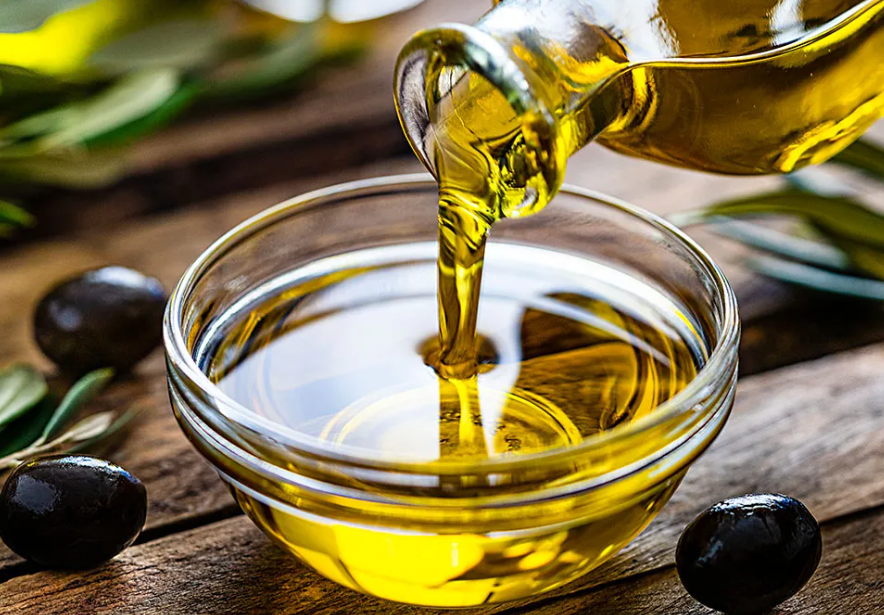
Olive oil, often referred to as “liquid gold,” is a cornerstone of Mediterranean cuisine and a symbol of health and vitality. Extracted from the fruit of the olive tree (Olea europaea), it is cherished worldwide for its rich flavor, versatility, and numerous health benefits.
Types of Olive Oil
Olive oil comes in several varieties, each suited for different uses:
- Extra Virgin Olive Oil (EVOO): The highest quality, made from cold-pressed olives, with a robust flavor and high antioxidant content.
- Virgin Olive Oil: Slightly lower in quality than EVOO, but still flavorful and minimally processed.
- Refined Olive Oil: Neutral in taste and suitable for cooking at higher temperatures.
- Pomace Olive Oil: Extracted from the olive pulp, primarily used for industrial purposes or cooking.
Culinary Uses
Olive oil is a versatile kitchen essential:
- Cooking: Perfect for sautéing, roasting, and grilling due to its moderate to high smoke point.
- Dressing: Drizzle over salads, vegetables, or bread for a burst of flavor.
- Marinades: Enhances the flavors of meats, fish, and vegetables when used as a base for marinades.
- Baking: Can be used as a substitute for butter or other oils in baking, adding a unique richness.
Health Benefits
Olive oil is celebrated for its nutritional value and health-promoting properties:
- Rich in Healthy Fats: Contains monounsaturated fats, which support heart health.
- Antioxidant Powerhouse: Packed with polyphenols and vitamin E, which combat oxidative stress.
- Anti-inflammatory: Studies suggest olive oil can reduce inflammation, benefiting conditions like arthritis.
- Brain Health: May support cognitive function and reduce the risk of neurodegenerative diseases.
- Weight Management: Despite being calorie-dense, it can aid weight control as part of a balanced diet.
Fun Facts
- Olive oil has been produced for over 5,000 years, originating in the Mediterranean region.
- Ancient Greeks and Romans used olive oil not only for cooking but also as a base for perfumes, medicines, and lamp fuel.
- The oldest known olive tree, located in Crete, is estimated to be over 3,000 years old and still produces olives!
Quality Indicators
When selecting olive oil, consider the following:
- Color: Can range from golden yellow to green, depending on the olives and processing.
- Taste: Look for a balanced flavor profile with fruity, peppery, or grassy notes.
- Labels: Certified extra virgin olive oil is your best bet for quality and purity.
Storage Tips
To maintain freshness:
- Store olive oil in a cool, dark place, away from heat and light.
- Use within 6 months to a year for the best flavor and nutritional value.
- Always keep the bottle tightly sealed to prevent oxidation.
Cultural and Culinary Significance
Olive oil is deeply rooted in the cultures of Mediterranean countries:
- Italy and Spain: Known for their extensive olive groves and exquisite olive oils.
- Greece: Uses olive oil generously in dishes like moussaka and Greek salad.
- Middle East: A staple in dishes like hummus, baba ghanoush, and tabbouleh.
Whether you’re dipping bread in extra virgin olive oil, drizzling it over a fresh salad, or cooking a delicious meal, olive oil’s unparalleled flavor and health benefits make it an indispensable ingredient in kitchens worldwide.
